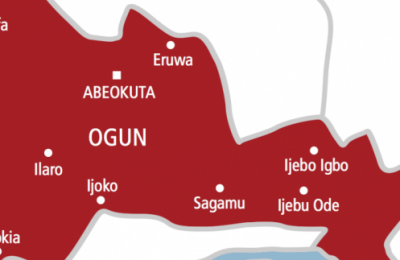Bimpe Femi-Oyewo is an international higher education expert, a development specialist, and the founder/CEO of Edward Consulting. She has over 10 years of experience in international work and has helped over 8,000 Nigerians and Africans secure international scholarships to study at notable universities across the world. In this interview by Kingsley Alumona, she speaks about her work, global education, among others.
You studied for your BA in Political Science at the University of Maryland in the United States and your MA in International Development Policy at Duke University in the United Kingdom. Did you study in Nigeria at all? Were your BA and MA studies under scholarships?
Yes, I lived and studied in Nigeria till I was 16 years old when I moved to the US for my undergraduate studies. For part of my bachelor’s programme, I was on a scholarship, and for graduate school at Duke University, I received a merit-based scholarship along with the P.E.O. Fellowship. It didn’t cover my full tuition or cost of attendance but it was substantial.
You studied political science and international development policy. How come you now work in the international higher education space? What inspired this passion and interest?
I have always been passionate about impact-driven work that creates positive change — and, initially, that was through international development. Working in the international education sector still allows me to achieve this. Through my work in international education, I make dreams possible, eliminate financial barriers that international African students face with accessing affordable quality higher education overseas, and help them achieve their full potential through life-changing global opportunities.
You are the Founder and CEO of Edward Consulting. Tell us about it and the work you do with it.
Edward Consulting is an educational consulting firm investing in world-class education for Africans through access to affordable, quality higher education in overseas countries. In just five years, my organisation has guided and mentored over 8,000 African students and secured over $22 million (approximately ₦33 billion) as of January 2024 in scholarships and funding, enabling Africans from countries like Nigeria, Uganda, Malawi, and Zambia to pursue undergraduate and graduate studies at top-tier universities like Harvard, MIT, Oxford, Yale, and Cambridge, and more across the US, UK, Canada, and Europe.
We also have an Edward Adefemi-Oyewo Scholarship in honour of my late Dad, Dr Edward Adefemi-Oyewo that allows us to support Africans from low-income communities to access quality education overseas. Through this initiative, we have secured over $2.6 million in scholarships for these Africans where we bear all the application-related costs. For example, one of our clients is the first in his family to study overseas on a fully-funded scholarship that covers tuition, health insurance, and accommodation through the Chancellor’s Scholarship at Appalachian State University. He is the first international student to secure that scholarship since its inception. Our work ensures that African students can overcome financial constraints and access world-class educational opportunities, thereby empowering the next generation of leaders and innovators from Africa.
How were you able to achieve the feat of securing $22 million in funding for your African clients to study at top universities like MIT, Oxford, Imperial College, Yale, Toronto, Cambridge, etc?
Many talented African students face significant financial barriers and need more information or guidance on securing scholarships that can open doors to top-tier international institutions. We are breaking barriers to a world-class education for Africans, by providing tailored, results-driven scholarship consulting that transforms potential into opportunity. We focus on identifying the best scholarship opportunities for each individual based on their profile, guiding students through complex applications, helping them craft compelling stories that stand out to admissions committees, and ultimately gaining access to education that might otherwise be out of reach.
Why stress international education and not Nigerian education, which would foster local knowledge and development?
As someone fortunate to study abroad, I’ve seen firsthand how transformative studying abroad can be. It allows one to access unparalleled global opportunities to grow their networks, careers, and earnings. These opportunities help them support their families back home, as many Nigerians in the diaspora send remittances that contribute to economic growth and development. For example, the Central Bank of Nigeria’s quarterly statistical bulletin showed a significant increase of 63.7 per cent in remittances in the first nine months of 2024 compared to 2023. The inflow reached $3.82 billion.
While at Duke University, I had the opportunity to co-moderate a session with Dr Ngozi Okonjo-Iwala, the Director-General of the World Trade Organisation and Former Managing Director of the World Bank and two-time Finance Minister of Nigeria. That is the power of international education. That experience solidified my dream of impacting African development and growth through education so that others could have such opportunities. That dream became Edward Consulting in 2019, and we have since helped make many African international students’ dreams a reality and enabled them to contribute positively to Nigeria and sub-Saharan Africa.
Encouraging people to study abroad is tantamount to encouraging the ‘japa’ syndrome and brain drain in Nigeria. What is your take on this?
The term ‘brain drain’ implies that there are only a few skilled professionals and experts from Nigeria and that’s not the case. Yes, many high-skilled Nigerians are emigrating but the Nigerians choosing to stay back are as skilled and it’s an opportunity for them to step up, upskill, and fill these roles. I’ve also seen scenarios where companies here in Nigeria create a new contract with the Nigerians moving overseas. This allows them to continue adding value to the organisation and Nigeria but in a different capacity. For example, one of our teammates moved to Canada but stayed on and has still played a key role in Edward Consulting’s growth.
You are an advocate of global education. However, the cost of acquiring international education is high, and most people who want it, especially in Nigeria, cannot afford it. How would you advise this kind of people?
During my undergraduate in the US, $1 was N160. Six years later, when I went back for my master’s, it was $1 to N345. Now, it is $1 to N1,660. With the devaluation of many African currencies, accessing international education has become more challenging. Scholarships are a life and livelihood saver for African international students who can’t afford to study abroad. I’ll advise that they invest in themselves. It can be through tests, tutoring, or saving for their studies abroad. They need to be willing to do what’s necessary to stand out.
In November last year, you were on a panel organised by The International Education (TINE) with the title ‘Leveraging international education in preparing Africans for the Fourth Industrial Revolution’. What was the major highlight of the panel?
Africa has the youngest population globally, with about 60 percent of its people under age 25 and about 30 percent below age 30 (World Economic Forum, 2024). Education is essential to build African global leaders and innovators who will shape the continent. Significant hurdles still exist with the infrastructure (poor electricity supply and unreliable internet connectivity) for the Fourth Industrial Revolution. Ultimately, we all have a role to play in Africa’s innovation and development. Finally, the private sector and the international education bodies need to collaborate to develop more practical industry-oriented programmes for Africans to compete globally.
Tell us about your engagement with the United Nations Development Programme (UNDP) in schools in Fiji. What work did you do there and what was the experience like for you?
In 2017, I worked with UNDP on the Access to Justice and Human Rights team in Suva, Fiji. I was part of an interagency global team that partnered with the Ministry of Women and Children Affairs, Legal Aid, and the Human Rights and Anti-Discrimination Commission (HRADC) in the provision of human rights, peacebuilding, social services, and access to justice through mobile teams.
While there, I partnered with the HRADC to educate over 900 adolescents in northern Fiji schools about their human rights and freedoms as recognised in the Fiji Bill of Rights and globally. I was also a part of the pioneer team that trained over 1000 youth-led non-governmental organisation (NGO) leaders and civil society organisations (CSOs) on human rights. There, I met the then-president of Fiji, Major General Jioji Konusi Konrote at the 2017 Fiji National Women’s Expo, where we trained 475 artisan women from rural and remote maritime communities.
Overall, the experience was transformational. I enjoyed working with an amazing team improving lives in Fiji. I also got to travel to many regions of Fiji for our UNDP mission — and, while there, I explored the communities, the beaches, and the food.
What are the major challenges you face in the international higher education sector and how do you manage them?
With new governments, policy changes occur that affect international education. Navigating this can be challenging. These policies can hinder or facilitate the ease of international education for prospective African students. As an educational consultant, it’s important to stay informed of the ever-changing policies that affect international students’ mobility and to predict future trends based on the political and economic climate so we can keep Africans informed and provide them with the most up-to-date information to make the best decision for them and their families.
What are your aspirations for the New Year and where do you see Edward Consulting by the end of 2025?
In 2025, Edward Consulting will continue to work to eliminate the financial barriers for Africans to access quality higher education overseas by providing expert support throughout the scholarship and admission application process and advocating for systemic change with visa challenges affecting African students applying to study in countries like the US. Geographic expansion is another key pillar of our plan for 2025. Our vision is to make global education attainable for even more African talent.
READ ALSO: Int’l higher education stakeholders brainstorm on Africa’s future of work







